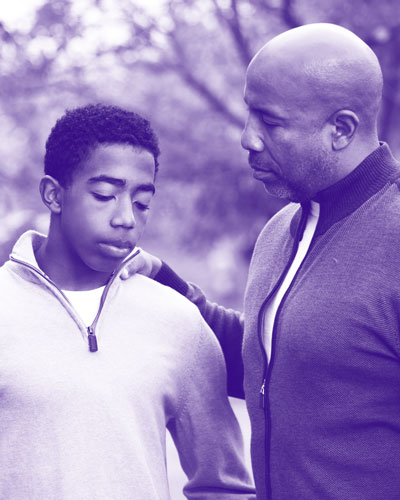Parents and Addiction
This is something that most parents of suffering addicts struggle with. They constantly ask themselves why is this happening? Why can’t they just stop? How could anyone be so self destructive? Why do they keep hurting themselves and everyone else? Is my son or daughter just a bad person? Are they simply insane? Why isn’t my help and love enough?
By Shayne Sundholm, CEO, Clean Recovery Centers
A chronic disease
The fact of the matter is that your son or daughter is not a bad person trying to become good. The addict is simply a very sick person that needs to get well. This is hard for many parents to understand let alone accept. Your child is not suffering from a character flaw or moral issue. They are suffering from a chronic disease that is often fatal if not treated effectively.

As parents, you have no more chance to “cure” your child in active addiction than you would if they had diabetes or cancer. In fact, parents can unknowingly and unwittingly make the situation worse if they are not well versed in drug and alcohol addiction.
Experience is critical
You well-intentioned efforts will likely be of little affect unless:
- You are a highly skilled therapist specializing in addiction
- You are someone in recovery with a strong recovery program
- You have experience successfully working with someone in recovery
- You have successfully recovered from drug and/or alcohol addiction yourself, most
Addiction feeds on negativity
Avoid criticizing and name calling whenever possible. Addiction feeds on failure, disappointment, hurt and negativity. Your child already feels hopelessly lost. Remember, as much as everyone else is affected by the addict’s suffering, no one is suffering more than your child although that may be hard for you to believe.
The guilt, remorse and shame felt by a suffering addict is almost indescribable. This is a major reason why they continue to use. They are unable to deal with the pain of what they have done. They get high to numb it out, and more destructive behavior ensues. This leads to even more guilt, remorse and shame, and they get high again. This vicious cycle continues getting worse each time.
Manipulation is commonplace
While you want to help and support your child, be careful not to enable them. A person in the depths of addiction may become extremely manipulative. This is necessary to continue to feed the disease – lying, stealing, cheating or worse are commonplace.
You have probably experienced and been shocked at just how extremely convincing your son or daughter has been in their deception. It is very important that you recognize this behavior as a symptom of their disease. Giving in to requests or demands for money, food, drugs and vehicles will probably do your child far more harm than good.
Understand the disease
The best advice is to learn everything you can about the disease. Groups like Alanon can be extremely helpful. There is also a lot of content online as well as a number of very helpful books. It is important that you familiarize yourself with different programs and approaches.
Try to empower your suffering child and urge them to seek treatment, whatever that might look like. Be honest with friends and family members and don’t minimize your child’s disease.
While it may be tempting to rationalize your child’s behavior, try not to do this. Remember, addiction is nothing to be ashamed of. You would not be ashamed of your child if they had cancer, diabetes or any other disease.


